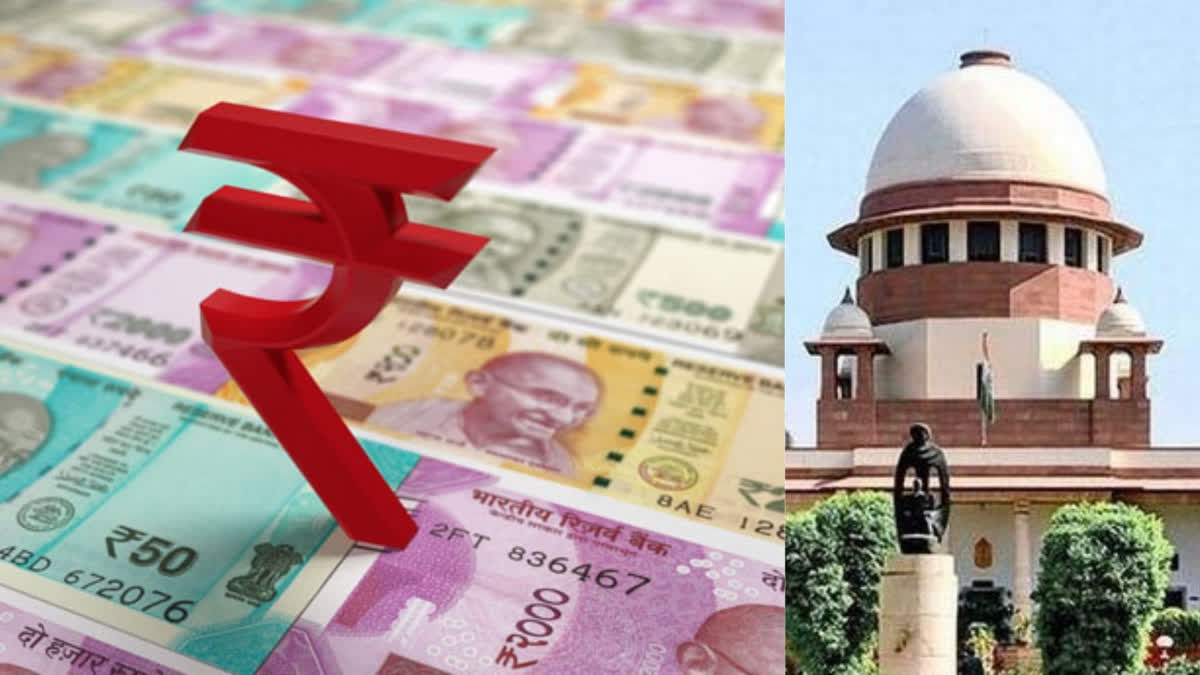New Delhi : The Supreme Court Monday said it will refer the challenge to the electoral bonds scheme to at least a five-judge bench of the apex court. A bench led by Chief Justice of India D Y Chandrachud announced the decision to refer the matter to the constitution bench consisting of at least five judges.
The Chief Justice said in view of the importance of the issue raised, and with regard to Article 145(4) of the Constitution, the matter be placed before a bench of at least five judges and the matter will be retained on October 30, 2023.
On October 10, a bench led by Chief Justice of India D Y Chandrachud and comprising justices J B Pardiwala and Manoj Misra said it will begin the final hearing on the matter on October 31, and if there is a spill over the hearing will continue on November 1. A clutch of petitions challenging the validity of the Centre's electoral bonds scheme as a source of political funding.
Petitions have been filed against the scheme by the Association for Democratic Reforms, Communist Party of India (Marxist), Dr Jaya Thakur (Congress leader), Spandan Biswal, and others.
During the hearing on October 10, advocate Prashant Bhushan, representing a petitioner, submitted that there three are grounds on which electoral bonds scheme has been challenged – one, the fact that it was passed a money bill; electoral bonds is anonymous source which has been legalized for funding political parties, and anonymous funding violates right to information of citizens; and, it also promotes corruption, as large amount of funding coming to political parties from companies which have received some benefits from them. Bhushan stressed, “it is a device which promotes corruption in the country….”.
The Chief Justice queried: does the source of funding take place through banking channels? How does the scheme work? Purchase of an electoral bond happens through a bank transfer or cash? Bhushan said both are allowed. “That is critical, because if it is through bank transfer…..purchaser is treated as anonymous”, said Chief Justice. Bhushan said the source is known to the State Bank of India (SBI) and they will not disclose, and the total amount can be from Rs 10,000 to Rs 1 crore.
Also Read : Hamas' secret weapon? Is a sea flood bomb awaiting Israel when it launches ground offensive in Gaza?
Advocate Shadan Farasat, representing another petitioner, said the purchase usually does not take place through cash and “you will have to have an account in a certain designated bank account and only from bank transfer it can be done”. Farasat said the identity of the purchaser of the electoral bonds is kept anonymous and the real anonymity is “when you transfer to a political party, who has transferred to which political party is anonymized from the public domain, and that is the real challenge from our side”.
The Chief Justice said the electoral bond is like a bearer bond, and is the bond in person’s name or it is just like a bearer bond? That person can transfer to anybody? Bhushan said it is transferred to political parties. Farasat said the party which is entitled to encash electoral bonds has to be a recognized political party.



